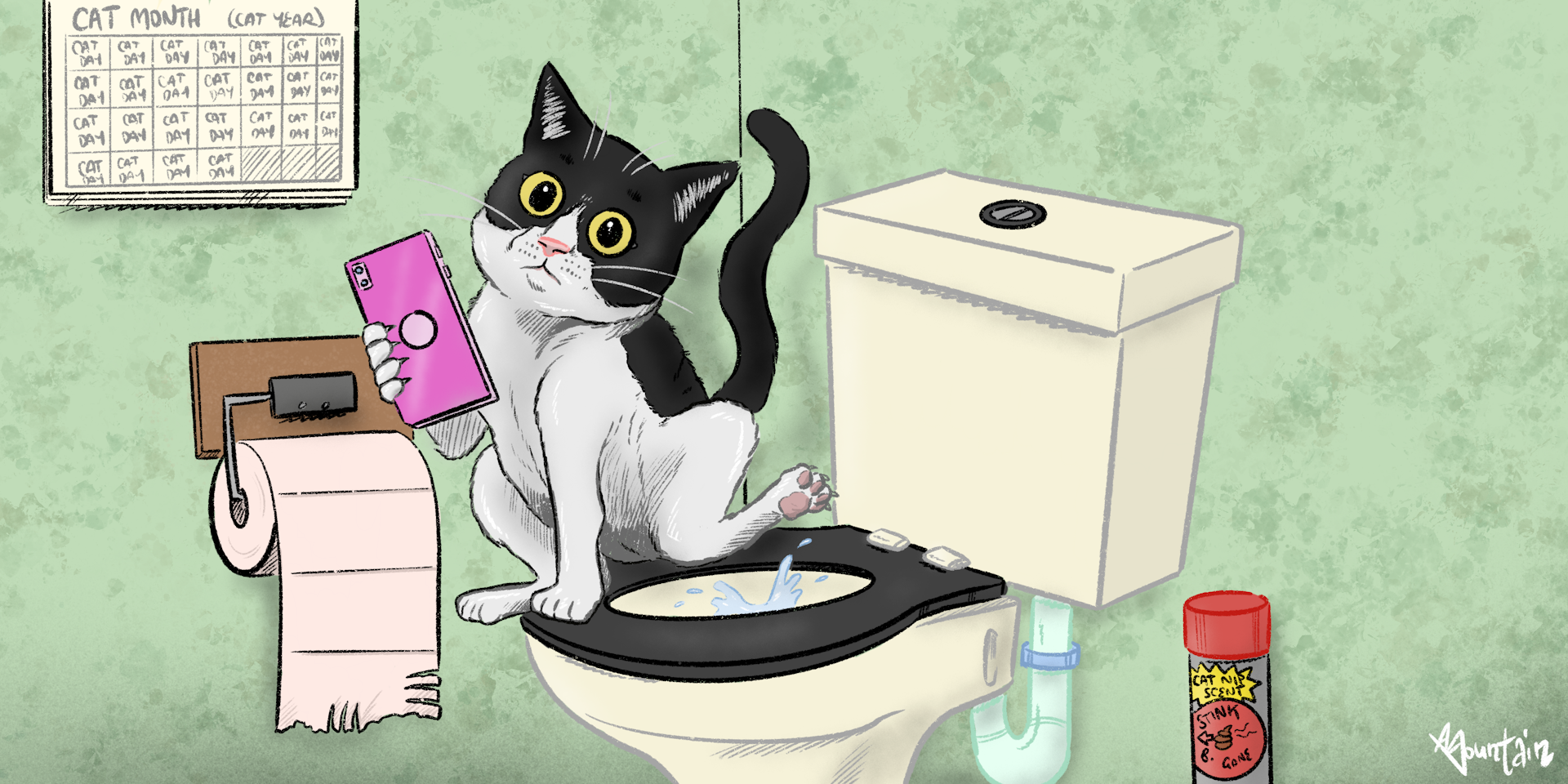Don't Flush Cat Poop Down Your Toilet - Maintain Your House's Plumbing Integrity
Don't Flush Cat Poop Down Your Toilet - Maintain Your House's Plumbing Integrity
Blog Article
What are your ideas about Don’t flush cat feces down the toilet?

Intro
As pet cat owners, it's important to bear in mind just how we get rid of our feline good friends' waste. While it may seem practical to flush cat poop down the commode, this practice can have destructive repercussions for both the atmosphere and human wellness.
Alternatives to Flushing
Thankfully, there are much safer and extra responsible ways to throw away pet cat poop. Consider the following alternatives:
1. Scoop and Dispose in Trash
The most common method of throwing away feline poop is to scoop it into a naturally degradable bag and throw it in the trash. Make certain to make use of a committed trash scoop and get rid of the waste quickly.
2. Usage Biodegradable Litter
Select naturally degradable pet cat trash made from materials such as corn or wheat. These trashes are environmentally friendly and can be securely thrown away in the trash.
3. Bury in the Yard
If you have a backyard, think about hiding cat waste in an assigned location away from veggie yards and water resources. Be sure to dig deep sufficient to avoid contamination of groundwater.
4. Mount a Pet Waste Disposal System
Invest in an animal waste disposal system particularly created for cat waste. These systems use enzymes to break down the waste, decreasing smell and environmental effect.
Health and wellness Risks
Along with ecological problems, purging cat waste can also pose health risks to human beings. Pet cat feces might consist of Toxoplasma gondii, a parasite that can cause toxoplasmosis-- a possibly serious disease, particularly for expectant ladies and individuals with damaged immune systems.
Ecological Impact
Flushing pet cat poop presents dangerous microorganisms and bloodsuckers into the supply of water, posturing a considerable threat to aquatic ecological communities. These contaminants can negatively influence aquatic life and compromise water quality.
Final thought
Liable pet dog ownership extends beyond supplying food and sanctuary-- it likewise includes appropriate waste administration. By avoiding purging feline poop down the toilet and choosing alternative disposal methods, we can minimize our ecological impact and safeguard human health.
Why Can’t I Flush Cat Poop?
It Spreads a Parasite
Cats are frequently infected with a parasite called toxoplasma gondii. The parasite causes an infection called toxoplasmosis. It is usually harmless to cats. The parasite only uses cat poop as a host for its eggs. Otherwise, the cat’s immune system usually keeps the infection at low enough levels to maintain its own health. But it does not stop the develop of eggs. These eggs are tiny and surprisingly tough. They may survive for a year before they begin to grow. But that’s the problem.
Our wastewater system is not designed to deal with toxoplasmosis eggs. Instead, most eggs will flush from your toilet into sewers and wastewater management plants. After the sewage is treated for many other harmful things in it, it is typically released into local rivers, lakes, or oceans. Here, the toxoplasmosis eggs can find new hosts, including starfish, crabs, otters, and many other wildlife. For many, this is a significant risk to their health. Toxoplasmosis can also end up infecting water sources that are important for agriculture, which means our deer, pigs, and sheep can get infected too.
Is There Risk to Humans?
There can be a risk to human life from flushing cat poop down the toilet. If you do so, the parasites from your cat’s poop can end up in shellfish, game animals, or livestock. If this meat is then served raw or undercooked, the people who eat it can get sick.
In fact, according to the CDC, 40 million people in the United States are infected with toxoplasma gondii. They get it from exposure to infected seafood, or from some kind of cat poop contamination, like drinking from a stream that is contaminated or touching anything that has come into contact with cat poop. That includes just cleaning a cat litter box.
Most people who get infected with these parasites will not develop any symptoms. However, for pregnant women or for those with compromised immune systems, the parasite can cause severe health problems.
How to Handle Cat Poop
The best way to handle cat poop is actually to clean the box more often. The eggs that the parasite sheds will not become active until one to five days after the cat poops. That means that if you clean daily, you’re much less likely to come into direct contact with infectious eggs.
That said, always dispose of cat poop in the garbage and not down the toilet. Wash your hands before and after you clean the litter box, and bring the bag of poop right outside to your garbage bins.
https://trenchlesssolutionsusa.com/why-cant-i-flush-cat-poop/

Do you really like more info about Can You Flush Cat Poop Down The Toilet?? Post a remark down the page. We'd be pleased to hear your opinions about this blog posting. We hope that you visit us again later on. Feel free to set aside a second to share this article if you enjoyed reading it. Bless you for your time. Visit us again soon.
Details Here Report this page